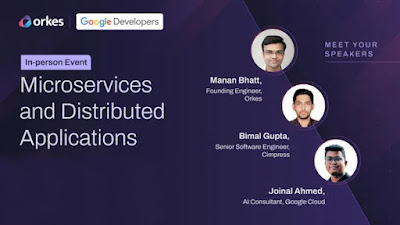What is Cloud?
What is cloud?
Till 2006, a visible mass of condensed watery vapour floating in the atmosphere, typically high above the general level of the ground was defined to be a cloud. After the advent of the Elastic Compute Cloud by the tech giant Amazon, definition of CLOUD COMPUTING changed to:
"The technology of distributed data processing which provide scalable information resources and capacities as a service to multiple users through Internet."
That means, the delivery of services and resources through internet which includes tools and applications like servers, data storage,networking,etc. For a layman, the storage of data on a remote database rather than local hard drives is termed as a cloud. Any electronic device which has access to internet can access data from anywhere and anytime.
These are some of the major milestones in the journey of Cloud Computing.
Deployment Models:
1) Public Cloud:These are operated by third-party companies who handle all the infrastructure to provide services on servers & storage over the internet which may be free of cost or chargeable. Users access their data which can be accessed by anyone in the world. Example: Amazon EC2, Google's App Engine, Blue Cloud by IBM and Azure services platform by Microsoft.
2) Private Cloud: It is a cloud infrastructure operated solely for an organization hosted either internally or externally. Many of them are provided on a private network.Example: Hewlett Packard Enterprise (HPE) -- offers the Helion Cloud Suite software.
3) Hybrid Cloud: A situation in which a company which operates both public and private cloud services integrated together.
4) Multi Cloud: An organization may have multiple public, private and hybrid clouds all either connected together or not.
Types of Cloud Services:
It provides various functionalities to users which include:
1) Storage or Backup of Data
2) Creating or Testing Apps
3) Streaming Video & Audio
Types of Cloud Computing:
1) Software as a Service(SaaS): A centrally hosted subscription based on demand software licensing & delivery model. For example: Salesforce, Netflix,etc
2) Infrastructure as a Service(IaaS): It essentially offers compute, storage and resources on demand on pay-as-you-go basis. For example: DigitalOcean, Microsoft Azure, Amazon Web Services(AWS),etc.
3) Platform as a Service (PaaS): It provides a platform for development and deployment of applications using resources in the cloud on pay-as-you-go basis. For example: Heroku, Microsoft Azure,etc.
4) Backend as a Service (BaaS): It provides a way to the web and app developers to connect the applications to the backend storage and APIs. For example: Firebase,etc.
5.) Function as a Service (FaaS): It provides a platform for developing, managing and running applications and its functionalities without the hassle of maintaining the infrastructure used for it. For example: AWS Lambda,etc.
6) Serverless Computing: It provides resources on demand without the need to rent or maintain virtual machines or servers at the backend.
In future, as rightly said by the tech giant Microsoft's CEO Satya Nadella, 'there won't be any particular sector as tech sector'. Complementing that, there won't be any specific use of cloud computing, rather each and every process, product or service will be cloud-based. This wave has already begun, for example- today everyone uses Google Drive, Microsoft Onedrive, Apple iCloud, etc. for syncing the data on the mobile phone, softwares and tools in major industries have become cloud based and the development & deployment of apps and programs has majorly shifted to cloud. There are many other instances in today's world where cloud is used, but in the years to come the landscape of cloud will widen so as to increase the efficiency and security, in general.
In today's technologically equipped world, it becomes really necessary for even the common man, directly unrelated to tech industry, to enkindle curiosity to peruse about the working behind the commonly used technologies and tools. It is not only to gather knowledge just for the sake of it, but it becomes really important for people to be aware about the technologies and fundamentals of what they use regularly and hence are aware about what they wish to use and what they don't. For instance: having thorough fundamental understanding of the concepts of tech will help them to conscientiously decide whether to click Agree or Deny when asked for their permission by some app/software/website, for using some sensor, camera, location,etc. If they know that a particular website/app/software basically doesn't require location access then it would become clear for them to decide whether to allow or deny access depending on the situation.
So, majorly in future everyone has to be well-versed with cloud and its functioning, especially for the ones who are working or pursuing technological fields in their career.
" Learning should be a continuous and everlasting process as the world & technology evolves & updates in Planck time. "







Comments
Post a Comment